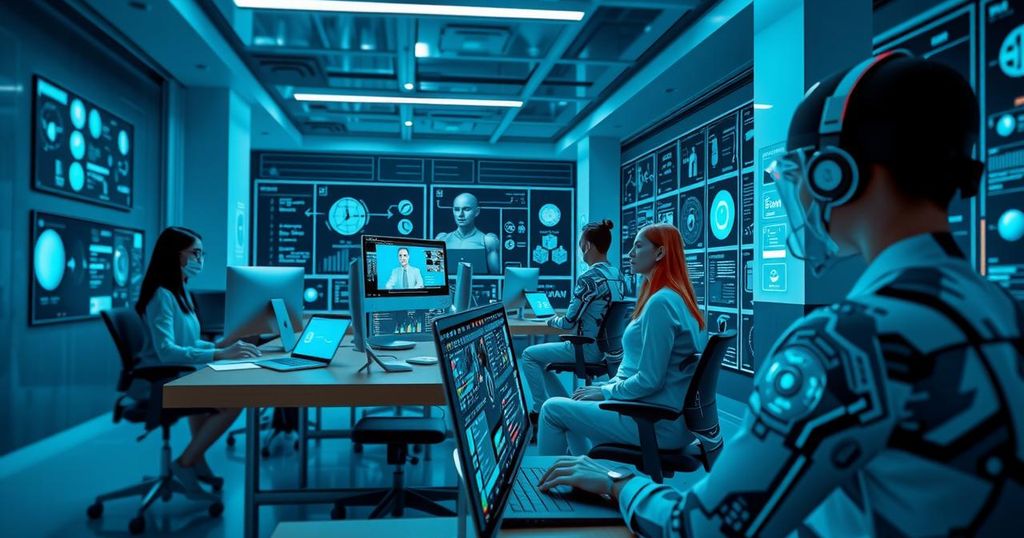Nvidia CEO Jensen Huang predicts the inevitability of AI employees across multiple sectors, emphasizing that these digital agents will perform roles similar to human workers. He believes that the integration of AI will boost productivity without necessarily resulting in job losses, as companies adapt to this technological evolution.
Nvidia’s CEO, Jensen Huang, has reiterated his belief that the integration of artificial intelligence (AI) into the workforce is inevitable. In a recent podcast interview, Huang suggested that AI agents will fill various roles, including marketing, chip design, and supply chain management. He emphasized that these agents will be treated similarly to human employees, taking on tasks and prompting interactions akin to those we have today. During previous discussions, Huang has elaborated on the notion of “digital agents” that aim to enhance company productivity. He envisions a future in which AI entities collaborate with one another, recruiting additional AIs for complex problem-solving endeavors. According to Huang, this transformation will not necessarily lead to widespread job losses; rather, he asserts that businesses adopting AI will likely experience growth and improved earnings, offsetting the potential for layoffs. Huang further explained that sectors like Software as a Service (SaaS) are well-positioned to benefit from AI innovations, indicating these platforms are brimming with specialists that can be utilized by various enterprises. He illustrated this with the example of Nvidia developing AI agents for Open USD while imagining scenarios where chip design firms enlist a multitude of engineers on a rented basis. Other industry leaders share similar visions of AI’s potential impact on the labor market. Eric Yuan, CEO of Zoom, has coined the term “digital twins” to describe AI systems capable of attending meetings and managing tasks traditionally performed by employees. Concurrently, Sundar Pichai of Google reported that AI currently contributes to approximately 25% of code generation within the company. Despite these advancements, Huang acknowledges that while AI may drive productivity, job adjustments could still occur as businesses adapt to this evolving landscape. Notably, reactions to AI’s influence have been mixed, as exemplified by backlash faced by Klarna’s CEO over comments regarding workforce reductions facilitated by AI efficiencies.
The advent of artificial intelligence in the workplace has been a topic of increasing interest among industry leaders. As AI technology continues to evolve, companies are exploring ways to incorporate AI into daily operations to enhance efficiency, productivity, and service delivery. Jensen Huang’s assertions reflect a growing consensus among business executives regarding the potential roles AI might occupy in the workforce. This discussion also touches upon the anticipated interaction dynamics between human employees and AI systems, as well as the implications for job security and employment trends.
In conclusion, Nvidia CEO Jensen Huang envisions a future in which AI employees will play integral roles across various sectors, enhancing productivity without necessarily leading to job losses. His perspectives on AI as a transformative force in the workforce resonate with insights from other technology leaders, highlighting both opportunities and challenges that lie ahead. As AI continues to advance, its impact on the workplace will require careful consideration from businesses and employees alike.
Original Source: www.businessinsider.com

Leave a Reply